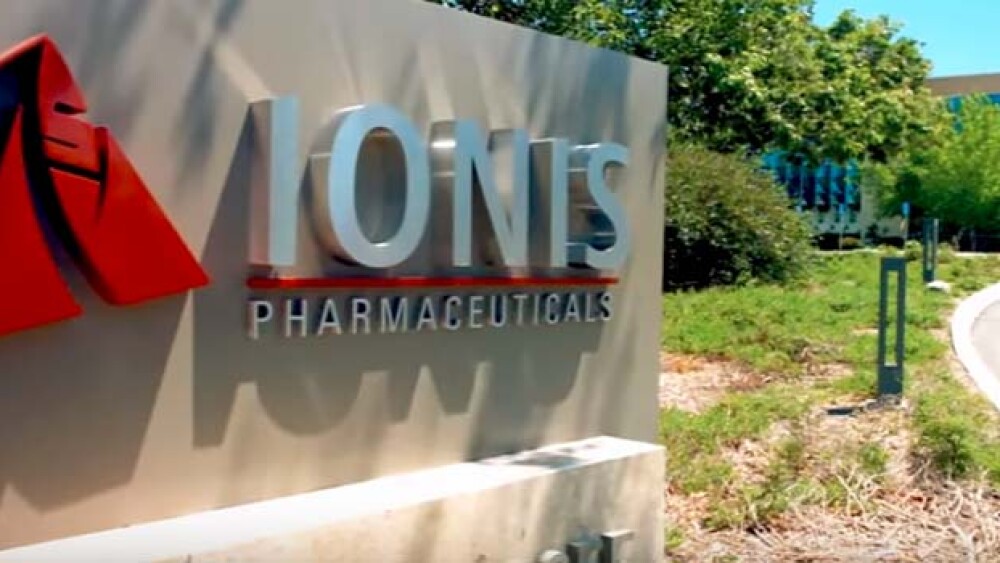In spite of positive Phase IIb results from a thrombosis prevention trial, Ionis is back on the market for a new partner after Bayer returned the rights to the drug to Ionis.
Courtesy of Ionis Pharmaceuticals
In spite of positive results Phase IIb results studying a thrombosis prevention drug, Ionis Pharmaceuticals announced Friday it is back on the market for a new partner after Bayer returned the rights to the drug.
Ionis partnered with Bayer in 2015 to develop the drug. The company, then called Isis Pharmaceuticals, received $100 million upfront. Despite now having paid out a total of $185 million under the terms of the deal, Bayer and Ionis are parting ways.
“Upon termination of the agreement, rights and licenses granted by Ionis to Bayer under the collaboration will be returned to Ionis, and Ionis will have full rights to continue the clinical development and future commercialization of fesomersen worldwide,” said Pamela Cohen, a Bayer communications representative, in a statement sent to BioSpace.
Fesomersen is an antisense medicine that targets Factor XI – a clotting factor in the liver. The latest study, RE-THINC ESRD, evaluated the drug’s capabilities in patients with end-stage renal disease. It showed that patients taking fesomersen did not experience an increase in major bleeding events.
The drug also decreased Factor XI activity levels in the liver, potentially offering patients a solution to reduce blood clot risk without the bleeding.
High levels of FXI increase the risk of blood clot formation, or thrombosis. One in four people worldwide dies each year from a condition caused by thrombosis, according to the International Society on Thrombosis and Haemostasis (ISTH).
Dialysis patients are at a 2-fold increased hazard of developing pulmonary embolism than the general population. Doctors prescribe anticoagulants to help, but these drugs come with their own risk of major bleeding.
Bayer Still Active in Thrombosis Space
Bayer has two other hopefuls in the pipeline for this new class of anti-thrombotics, including a Phase II study comparing Bayer’s lead FXI inhibitor, asundexian, to Bristol Myers Squibb and Pfizer’s anticoagulant, Eliquis.
In the study, asundexian resulted in lower rates of bleeding compared with the standard dose of apixaban in patients with atrial fibrillation. Parallel IIb studies are being done in patients with recent ischemic stroke and recent myocardial infarction.
The second Bayer program is for osocimab and focuses on patients with end-stage kidney disease, as with fesomersen. Results for the completed Phase II study in this group have not yet been posted.
“The decision to discontinue the development of fesomersen was a business one and follows our company’s decision to focus on the further development of asundexian,” Cohen said.
Ionis will still need a partner to help drive fesomersen forward toward approval. The company currently has a slew of partnerships in the pipeline with notable pharma companies, including six with Cambridge-based AstraZeneca.
One of the candidates in development with Astra Zeneca is for chronic kidney disease. Severe CKD patients are up to 5.5 times more likely to develop venous thrombosis.
“We are focused on getting fesomersen into the hands of a new partner to deliver it to the market and patients in need,” said Richard S. Geary, Ph.D., executive vice president and chief development officer at Ionis in the announcement.






